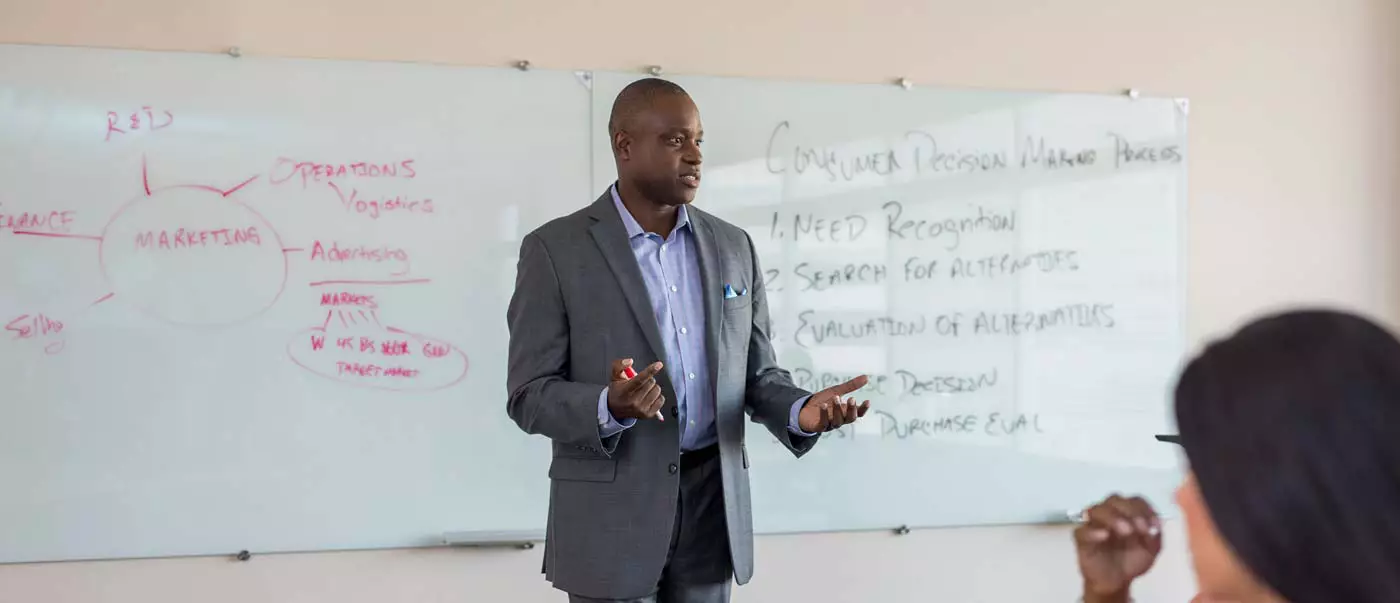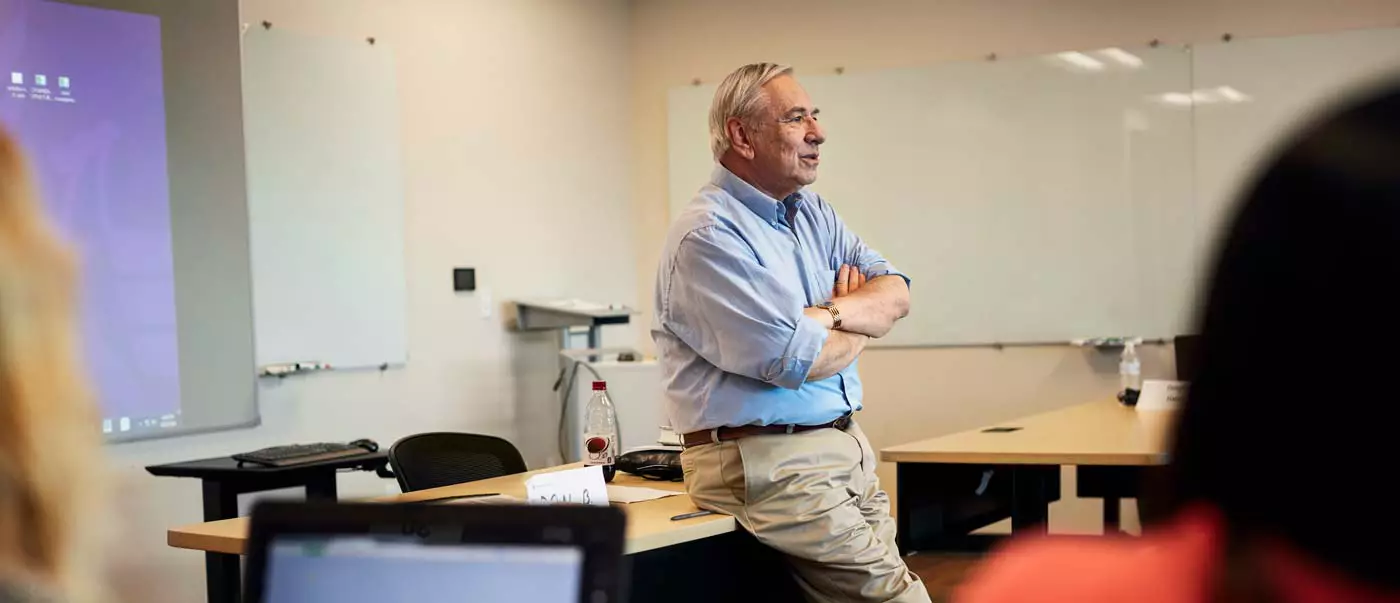Healthy Leadership: An Adventure of Ideasi

By Dr. Mark McCaslin
A Series on Healthy Leadership
This Blog will concern itself with the development and maintenance of healthy leadership. Let us begin by risking a definition. I hope this definition does not become an anchor that limits thought and discussion, but one that becomes more like a sail casting us forward in pursuit of healthy leadership. In that regard, I welcome questions, comments, and criticisms in the spirit of exploring the nature of healthy leadership. Healthy leadership is a potentiating relationship among leaders, followers, and human potentials, purposed at building and advancing the capacities within and around our organizations, schools, communities, and homes. "Potentiating," for clarification, is any action taken by individuals serving in leader roles that affectively causes something, or the relationship itself, to become potent—or, if you would prefer, creative, strong, capable, powerful, effective, empowered…healthy.
The topics and discussions will concern your potential as a leader, teacher, parent, and/or community builder, as well as the potential of those you lead, teach, parent, and/or engage within the community. When taken as a potentiating art, the nature of leadership becomes less mysterious and complicated. This generalization is not to be taken as a rebuke of the science of leadership. However, leadership as a potentiating art is an adventure of ideas supported by established potentiating practices suitable for developing healthy leadership anywhere and anytime. Such leaders are not known for their power, position, or authority, but more for the potentiating practices they keep.
Wherever we find a healthy individual or healthy community of practice fully actualizing its potential, generativity is found as well. This notion of generativity is critical to the overarching purpose of healthy leadership. Individuals in leader roles willing to nurture and guide others toward a more sustainable future purposively cultivate generativity. Generativity is a critical consideration for cultivating purposeful, healthy leadership. Generativity is actualized through a simple formula that will provide an overarching framework for our discussion surrounding the nature of healthy leadership.
Potentiating Relationships + Sustainable Practices + Capacity Building = Generativity
To engage the world of ideas and to meet it pragmatically with strength, hope, and possibilities is a core purpose of potentiating. Ideas about our potential’s evolving nature, particularly creative integrally centered empowering ideas, inspire dialogue and adventure. Alfred North Whitehead spoke to what he called “Adventures of Ideas”. This adventure resonates deeply with our potentiating purposes. It is an inspiring, motivating, and potentiating declaration. What Whitehead was directly addressing through his process philosophy was the historical proclivity we tend to fall into where we lock on to some idea or truth and then offensively lockout or drown competing or newer ideas trying desperately to push through the human substrate.
Our discussions will reveal the further reaches of leadership by seeking sustainable practices that make the cultivation of generativity possible. Future issues will explore how to enable individuals serving leader roles to actualize the human potential placed in their stewardship. As a human art, leadership concerns anyone seeking ways to create positive futures for those we lead, teach, parent, love, and/or engage in our communities. It concerns attention and intention working in harmony to extend our reach as leaders. Healthy leadership aimed at advancing our collective potentials requires, as with any art, dedicated practice.
Leadership is Fundamentally Simple
Leadership is fundamentally simple to understand: individuals in leader roles set out to solve a problem or set of problems, or to seize upon an opportunity. To do so, they must build productive relationships with followers,1 aware that their potentials will determine how they solve problems and/or respond to opportunities. When made well, such efforts will advance the organization, school, home, and/or community, and when made exceptionally well, the well-being of all within the relationship is elevated: we grow and become better for it. That is, I feel better about myself, my relationships, and my organization, school, home and/or community. It feels healthy. Cultivating this symbiosis,2 this synergy, is the quintessential purpose of healthy leadership.
1 The notion of ‘followership’ is often discussed in leadership studies. In some systems, it is viewed as derogatory or defaming. This system’s dynamics cause leadership roles to shift as leaders seek their greatest potential. Leader and follower thereby connect through a potentiating purpose.
2 Symbiosis = an interdependent relationship in which all benefit.
The Practice of Leadership
In practice, leadership is messy because people are complex. To begin, the leader must forge a common purpose, objective, or vision to solve ever-emerging problems or seize opportunities as they develop. However, forging collaborative relationships around these problems and opportunities requires an emotional agility few master, because people’s innate potentials make them infinitely complicated. Our discussions will not offer a shortcut to acquiring this agility. There are none. However, it may provide practices and approaches that will help you potentiate yourself and those you would lead, teach, parent, or engage within your community of potential.
What does it mean to hold a potentiating consciousness? This much, at least, I would hold to be true; the easiest way to cripple a person for life is to make them blind to their greatest potential. Moreover, and regrettably so, the easiest way to become this crippling force is to neglect our own emerging potential. Without an intention aimed at the full actualization of our own potential and the potential of those we would lead, teach, parent, or engage in developing our community, our pursuits will always fall just short of satisfactory.
Healthy Leadership Reveals a "Deeper" Purpose
Healthy leadership reveals a deeper purpose for leading (potentiating) that engenders an ethical approach toward the full actualization of human potential. From that perspective, healthy leadership forms a moral imperative directly supported and informed by creativity, spirituality, and empowerment. I would make it known that it is impossible to hold a potentiating practice without experiencing a paradigmatic shift of consciousness. But deeply, this shift is about the uncovering of a beautiful personality, a deep goodness within, and an enduring truth of self. These are the good things that await us on the path.
In concluding this first post of this Healthy Leadership series, let me leave you with an invitation. If you have comments, suggestions, or criticisms, please write me at mark.mccaslin@phoenix.edu where I will respond or even bring forward these comments in future posts on healthy leadership.
i Credit is given to Alfred North Whitehead. An Adventure of Ideas, 1933.

ABOUT THE AUTHOR
Dr. Mark McCaslin
Bio
Dr. Mark McCaslin is a academic leader with a rich history of teaching, educational programming, and administration. His personal and professional interests flow around the development of philosophies, principles, and practices dedicated to the full actualization of human potential. The focus of his research has centered upon healthy organizational leadership and educational approaches that foster a more holistic approach towards the actualization of that potential. At the apex of his current teaching, writing, and research is the emergence of healthy leadership and the potentiating arts.


